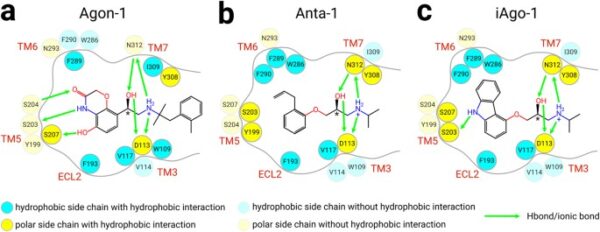Isomerases are a group of enzymes that are critical to the body’s metabolic processes. Without them, it would be difficult for the body to convert one molecule to another. These enzymes can act on a diverse range of molecules, including carbohydrates, nucleotides, amino acids, and lipids. In this blog post, we will explore what isomerases are and their role in biochemistry.
What are lsomerases?
Isomerases are enzymes that catalyze the conversion of one molecule to another. Unlike other enzymes that facilitate the reaction between two different molecules, lsomerases only work on a single substrate. This makes isomerases highly specific catalysts that can help convert one isomer into another, thereby changing the molecule’s properties.
Types of Isomerases
There are several different types of isomerases that are classified based on the type of conversion they facilitate. Some common types include:
Cis-Trans Isomerases: These enzymes help to convert a molecule from a cis to a trans form or vice versa. For instance, cis-trans isomerases help to convert cis-unsaturated fatty acids to trans-fatty acids, which are commonly found in processed foods.
Epimerases: These isomerases catalyze the conversion of one epimer to another. Epimers are molecules that differ in their configuration at only one carbon atom. For example, galactose and glucose are epimers of each other, as they differ only in their configuration at carbon 4.
Racemases: These enzymes catalyze the conversion of one enantiomer to its mirror image (the racemate). For instance, they can help to convert D-Glucose to L-Glucose which is an important intermediate in metabolic pathways.
Mutases: These unique isomerases catalyze the rearrangement of chemical groups within a molecule. For example, phosphoglucose mutase is an essential enzyme in glucose metabolism, as it helps to convert glucose-6-phosphate to fructose-6-phosphate, which is a vital intermediate in glycolysis.
The Role of Isomerases in Biochemistry
Isomerases play a vital role in the body’s metabolic processes. They are essential enzymes that help to convert one molecule to another, which in turn facilitates the production of energy and building blocks. Isomerases are involved in a wide range of biochemical pathways, including glycolysis, the TCA cycle, and the electron transport chain.
Isomerases also play a significant role in the production of complex molecules such as proteins, nucleotides, and lipids. For instance, one type of isomerase called peptidyl-prolyl cis-trans isomerase facilitates the folding of newly synthesized proteins by catalyzing the cis-trans isomerization of prolyl peptide bonds.
Conclusion
Isomerases are an essential group of enzymes that help to catalyze the conversion of one molecule to another. They are involved in several key biochemical pathways, including energy metabolism and the production of complex molecules. Understanding the role of isomerases in biochemistry is critical in understanding how metabolic processes occur within the body. Further research on isomerases could yield new insights into disease prevention and therapies.

